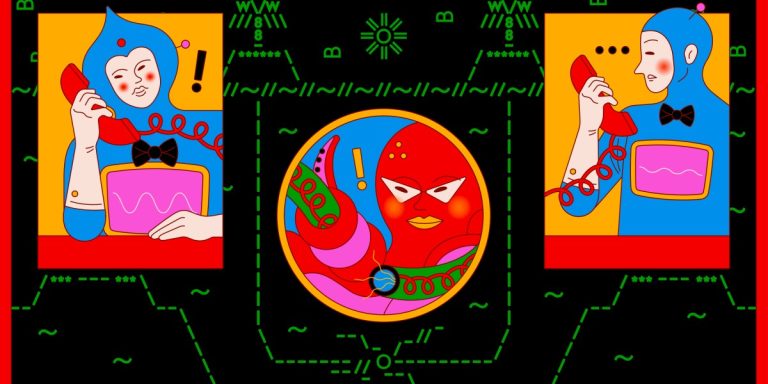For months, my colleague Will Douglas Heaven has been on a quest to go deeper to grasp why everyone appears to disagree on precisely what AI is, why no person even is aware of, and why you’re proper to care about it. He’s been speaking to a few of the largest thinkers within the discipline, asking them, merely: What’s AI? It’s an important piece that appears on the previous and current of AI to see the place it’s going subsequent. You can read it here.
Right here’s a style of what to anticipate:
Synthetic intelligence virtually wasn’t referred to as “synthetic intelligence” in any respect. The pc scientist John McCarthy is credited with developing with the time period in 1955 when writing a funding utility for a summer time analysis program at Dartmouth School in New Hampshire. However multiple of McCarthy’s colleagues hated it. “The phrase ‘synthetic’ makes you assume there’s one thing form of phony about this,” stated one. Others most well-liked the phrases “automata research,” “advanced data processing,” “engineering psychology,” “utilized epistemology,” “neural cybernetics,” “non-numerical computing,” “neuraldynamics,” “superior automated programming,” and “hypothetical automata.” Not fairly as cool and horny as AI.
AI has a number of zealous fandoms. AI has acolytes, with a faith-like perception within the expertise’s present energy and inevitable future enchancment. The buzzy standard narrative is formed by a pantheon of big-name gamers, from Massive Tech entrepreneurs in chief like Sundar Pichai and Satya Nadella to edgelords of trade like Elon Musk and Sam Altman to superstar laptop scientists like Geoffrey Hinton. As AI hype has ballooned, a vocal anti-hype foyer has risen in opposition, able to smack down its bold, usually wild claims. In consequence, it may possibly really feel as if totally different camps are speaking previous each other, not at all times in good religion.
This typically seemingly ridiculous debate has large penalties that have an effect on us all. AI has lots of huge egos and huge sums of cash at stake. However greater than that, these disputes matter when trade leaders and opinionated scientists are summoned by heads of state and lawmakers to elucidate what this expertise is and what it may possibly do (and the way scared we must be). They matter when this expertise is being constructed into software program we use every single day, from search engines like google to word-processing apps to assistants in your cellphone. AI isn’t going away. But when we don’t know what we’re being bought, who’s the dupe?
For instance, meet the TESCREALists. A clunky acronym (pronounced “tes-cree-all”) replaces a good clunkier listing of labels: transhumanism, extropianism, singularitarianism, cosmism, rationalism, efficient altruism, and longtermism. It was coined by Timnit Gebru, who based the Distributed AI Analysis Institute and was Google’s former moral AI co-lead, and Émile Torres, a thinker and historian at Case Western Reserve College. Some anticipate human immortality; others predict humanity’s colonization of the celebs. The widespread tenet is that an omnipotent expertise isn’t solely inside attain however inevitable. TESCREALists imagine that synthetic normal intelligence, or AGI, couldn’t solely repair the world’s issues however stage up humanity. Gebru and Torres hyperlink a number of of those worldviews—with their widespread give attention to “enhancing” humanity—to the racist eugenics actions of the twentieth century.
Is AI math or magic? Both means, individuals have robust, virtually non secular beliefs in a single or the opposite. “It’s offensive to some individuals to counsel that human intelligence could possibly be re-created by way of these sorts of mechanisms,” Ellie Pavlick, who research neural networks at Brown College, instructed Will. “Individuals have strong-held beliefs about this subject—it virtually feels non secular. Then again, there’s individuals who have a little bit little bit of a God advanced. So it’s additionally offensive to them to counsel that they only can’t do it.”
Will’s piece actually is the definitive take a look at this entire debate. No spoilers—there are not any easy solutions, however a lot of fascinating characters and viewpoints. I’d advocate you read the whole thing here—and see if you can also make your thoughts up about what AI actually is.
